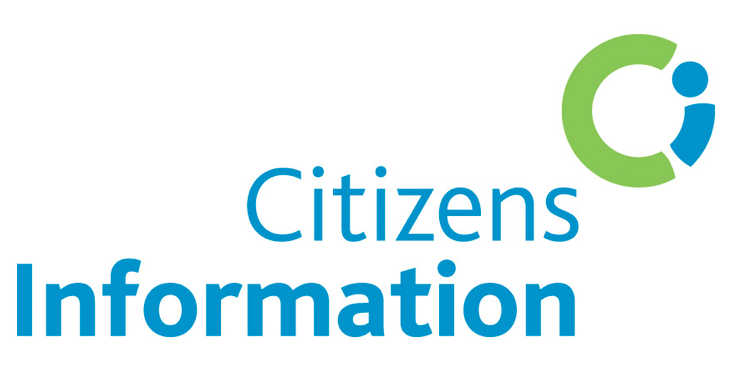
.
 Know Your Rights has been compiled by Kerry Citizens Information Service which provides a free and confidential service to the public…
Know Your Rights has been compiled by Kerry Citizens Information Service which provides a free and confidential service to the public…
Ireland, like the rest of Europe, faces a growing challenge in dealing with waste from electrical and electronic equipment (WEEE).
Legislation aims to ensure that old electrical and electronic equipment is recycled or reused rather than dumped in landfill sites and to encourage better design of electrical and electronic products so they can be recycled easily and more efficiently
What must retailers do about WEEE?
Retailers must take back your old electrical equipment free of charge when you buy new good.
They must also ensure you are aware of the take-back options they offer, and other ways to dispose of your old electrical and electronic equipment (for example, by providing leaflets or signs at the point of sale)
They must store waste electrical products properly and transport them safely to an approved collection facility.
Continued below…

What equipment can I take back?
Retailers must take back your old electrical and electronic equipment in store for free on a one-for-one, like-for-like basis. This means the old product must be of the same type or have the same purpose as the new item purchased.
Retailers in large stores (with an electrical-goods sales area greater than 400 square metres) must accept your small appliances (less than 25 cm high) for recycling without insisting you buy anything.
You can deposit certain types of waste batteries at various shops for free
What if I want something delivered to my home?
If you are having something delivered to your home, you can have the old item collected at the same time for no extra cost on the same one-for-one, like-for-like basis.
The retailer cannot charge for collecting the waste equipment (although they can charge a delivery fee for the new item).
Retailers must give 24 hours’ notice of delivery and you must have the old item ready for collection and disconnected from all electrical, gas or water systems (as appropriate).
If a retailer has not given 24 hours’ notice of delivery and an old appliance is not ready for collection, they must return to collect it within 15 days.
If you do not wish to use the free collection service when your new equipment is delivered, then you can return your old item to the shop at any time.
Continued below…
Who pays for recycling WEEE?
By law, producers of electrical and electronic goods are responsible for financing the collection, treatment, recovery and environmentally sound disposal of WEEE. This means you can return your household WEEE free of charge, either to a shop when buying a replacement item or to another authorised collection point, such as a local authority civic amenity site.
What are Environmental Management Costs?
Visible Environmental Management Costs (vEMCs) are standardised charges added to the price of certain goods to help to pay for the costs of recycling. You will see a vEMC on the price display on all refrigeration units, large household appliances, TVs larger than 73cm, gas discharge lamps and LEDs.
The retail price of the item includes the vEMC and the price display must include the following wording: ‘Included in this price is a contribution to recycling costs of (amount of contribution)’.
Your invoice, receipt or docket must state: ‘Price of electrical items includes a contribution to recycling costs’.
The vEMC charges fund the two collective compliance schemes operating in Ireland: WEEE Ireland and the European Recycling Platform.
These schemes ensure that all household WEEE is handled without causing harm to the environment when it is returned to retailers or deposited at landfill sites or civic amenity sites.
The vEMCs displayed on the goods you buy cannot exceed the actual costs of recycling. The WEEE Register has verified and issued a schedule of vEMCs to be displayed.
How should I dispose of batteries and contaminated waste?
Batteries should be disposed of carefully and not sent to landfill because they are classed as hazardous waste. According to WEEE legislation, retailers only need to take batteries which are contained within electrical or electronic equipment.
You can deposit waste batteries free of charge at:
• Any local authority civic amenity site
• Any shop selling the same type of battery
Retailers must take back batteries of a type they supply, even if you did not get the batteries from them. You do not have to buy anything from the shop when you are depositing waste batteries.
But retailers do not have to take back batteries of a type they do not supply. For example, they do not have to take back a car battery if they only sell batteries suitable for a torch or remote control
Retailers are not obliged to accept contaminated waste that would present a health and safety risk to their staff, such as leaking batteries.
What are the main risks to the environment from WEEE?
The main risks to the environment from WEEE are the depletion of natural resources and the release of dangerous substances:
If we send electrical and electronic products to landfill sites, we miss the opportunity to recover and reuse millions of tonnes of materials. Recovery of these materials would mean we need to extract less raw material to manufacture new products.
Some electronic equipment and its components contain substances that are considered dangerous to the environment and human health if they are disposed of carelessly.
Although these dangerous substances are usually present in only small amounts, they may leak into the soil, water or air and can cause serious environmental damage.
• For anyone needing information, advice or have an advocacy issue, you can call a member of the local Citizens Information team in Kerry on 0818 07 7860, they will be happy to assist and make an appointment if necessary.
The offices are staffed from Monday to Friday from 10am to 4pm. Alternatively you can email on tralee@citinfo.ie or log on to www.citizensinformation.ie for further information.
………………………………………………………………………………………………………………………………………………………………………………………………………………………………………………………………………………………………………………………………………………………………………………………………………………………………










